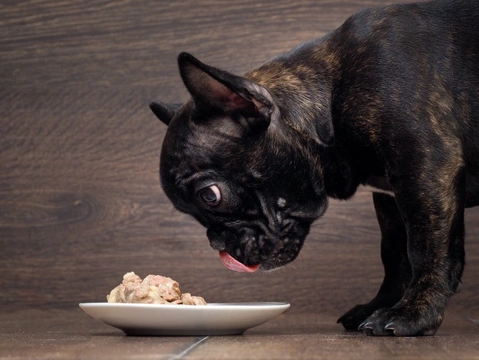Pets
Pets for studWanted petsBreedersAccessories & services
Knowledge hub
Support
Support & safety portal
What are the symptoms of food allergies in puppies?
Food allergies can be very complex, and can have a wide range of different effects on dogs that suffer from them, but when a puppy has allergies, the symptoms and indicators of a problem can be rather different.
Pups that develop allergies from an early age may suffer from a range of unusual symptoms that adult dogs rarely have, such a propensity for recurrent or hard to treat yeast infections and a general failure to thrive.
For anyone who owns a puppy or is considering buying one, it is wise to develop a basic understanding of the initial indicators of a food allergy in younger dogs, in order to ensure that you can find the right balance for their needs and support their normal growth and healthy development.
In this article, we will look at the symptoms of food allergies in puppies under a year old in more detail, including some of the best approaches to resolving the problem. Read on to learn more.
When might food allergies in puppies develop?
As a general rule, food allergies are most commonly diagnosed in dogs between the ages of two and around seven, and so it is more unusual for a pup under the age of one to present with a food allergy so early on.
Food allergies can develop at any time, however, and so for pups the point at which the litter weans onto normal food is one point, and when a new puppy goes on to their permanent home and changes to a different diet can be another.
However, a change of food is not always necessary for a food allergy to present, and a pup that eats normally and thrives during their first few weeks or months of life may potentially develop an allergy to the same food that they have always eaten as they grow and develop.
Are food allergies hereditary?
Exactly why some dogs are sensitive to certain food ingredients that do not negatively affect other dogs is something of a mystery, and often, dogs diagnosed with allergies will have no history of other dogs in their breed line having the same issue.
However, if the dam or sire is known to be prone to allergies or sensitivities, the pups that they produce will have a higher chance of developing sensitivities of their own, or being allergic to the same things that their parents were.
What causes allergies in young puppies?
There are virtually as many different potential allergenic triggers in foods are there are ingredients in food themselves, and this can make it really challenging to diagnose the exact cause or trigger in any given dog.
All-natural ingredients are just as likely to cause allergies as artificial ones, and so there is no clear answer to this question!
However, when it comes to narrowing down the cause of a food allergy in any given dog, there are generally several different ingredients that will be considered first, as these are often the most common culprits! These include:
- Fish.
- Dairy products.
- Artificial colourants.
- Beef.
- Flavour enhancers.
- Wheat.
- Other grains.
- Trace elements.
- Nuts.
- Eggs.
- Soy.
What are the symptoms of food allergies in puppies?
The symptoms of allergies in a dog of any age can be highly variable and diverse, and of course, other things can cause allergies as well as food! Narrowing down the cause of the allergen is usually the most challenging part of the process, but recognising the type of symptoms that food allergies can cause in pups can help to expedite the process and give you something to work with.
This is particularly important with puppies rather than adult dogs, because pups need the right diet to grow, develop and thrive, and a failure to provide the right type of nutrition during this very formative time can go on to affect your pup after they have grown up.
Not all pups will present with the same symptoms when they have a food allergy, but most will have several symptoms at once, and some of these are virtually unique to puppies, and rarely occur in older dogs suffering from the same problem.
Some of the symptoms of food allergies in puppies include:
- Hayfever-like symptoms, such as sneezing, a runt nose and red, irritated eyes.
- Hot spots or inflamed areas of the skin.
- Chewing and bothering at certain areas of the body, such as the paws or the base of the tail.
- Fur that is dull, greasy or flaky, and that often will smell dirty and unhealthy even when the dog is clean.
- A tendency to pick up a lot of minor infections and other recurrent issues.
- Recurrent or hard to treat yeast infections of the ears.
- Fungal or yeast infections in other areas of the body.
- Vomiting after eating.
- Diarrhoea or loose stools.
- A lack of concentration and training issues, and acting out in other ways.
If you spot any of the above symptoms in your own pup, it is important to speak to your vet about them as soon as possible, so that the allergen can be identified and the right diet found for your pup to allow them to thrive and develop normally.



